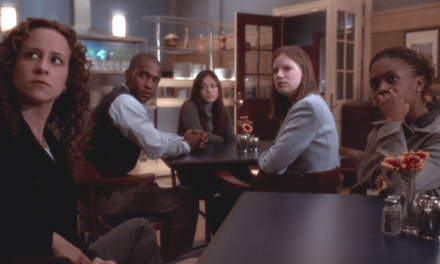Christa van Raalte and Christopher Pullen (both of Bournemouth University) are seeking contributors for a new edited book collection, examining ageing on screen in British film and TV drama since 2000, with a particular focus on representational issues, industry/production contexts and audience interactions.
According to the Office of National Statistics, one in six of the UK population is currently aged 65 or older, with this proportion expected to rise to one in four by 2050 (parliament.uk), yet the representation of ageing characters still only forms a minority of screen time. Olsen et al (2023) state that only a quarter of characters in recent British films are over 50, with 90% of those relegated to supporting roles. While there is no equivalent data of British TV, the most recent data from the Annenberg Foundation suggests that in 2017, fewer than 10% of speaking characters in US television drama were over 60. Given such small numbers it is to be expected that the quality and variety of representations across such roles might be limited, and narratives that focus on the embodied experiences and subjectivities of older people are few and far between, often relying on stereotypes of old age to engage a mainstream audience.
Historically, British film and TV drama have predominantly offered an enduring archetype of the older citizen as resolute, cantankerous and often comical, often nuancing the psyche of the post-war era. Examples range from the brusque older characters found in the Ealing comedy films (1940s/1950s) and the early films of British social realism, such as Saturday Night and Sunday Morning (1960) and Billy Liar (1963), to the memorable and often eccentric seniors in soap operas such as Coronation Street (1960-) and Crossroads (1964-1988), and sit coms such as Dad’s Army (1968-1977) and Last of the Summer Wine (1973-2010).
However, since the start of the twenty first century, we have experienced a rise in the representation of the capable, rebellious, and productive older character in TV and film. We have seen them appear as ensemble cast-members in comedy detective drama, such as in New Tricks (2004-2015), and as prominent characters in the ironic comedic social realist drama Shameless (2004-2013). In television shows ranging from healthcare dramas such as Doc Martin (2004-2022), to romantic comedy such as Last Tango in Halifax (2012-20), to crime drama such as Channel 4s recent Truelove (2023), we have seen elder-centred narratives come to the fore, revealing the resilience and indomitable spirit of ageing characters, often appearing as role models to the young. British films, meanwhile, have offered a range of striking representations from the camaraderie of the older ensemble cast in The Best Exotic Marigold Hotel (2011) and its sequel, to the individuals at the centre of films such as Philomena (2013), The Lady in the Van (2015), The Duke (2020), Living (2022) and recent release One Life (2023). We have also seen the persistently politicised work of older producers, screenwriters, and directors who continue to engage with contemporary audiences – offering self-reflexive work that frames their ageing, such as Ken Loach in I am Daniel Blake (2016) and The Old Oak (2023), Gurinder Chadha in It’s a Wonderful Afterlife (2010) and Viceroy’s House (2017), ) and Jimmy McGovern in The Street (2006-2009) and The Accused (2010-2012).
Such representations have framed the process and experience of ageing in terms of the wisdom that comes with older age, and of the contribution made to family and community, but also in terms of social isolation, failing health and the degradation of mind and body. Some foreground the past and memories of youth, while many focus on the remaining time that any older character may possess to achieve their goals, whether that may be to begin a new career or relationship, or to reflect and prepare for the last stages of their life. These texts and characters speak both to a general audience, potentially impacting society’s impressions and expectations of older people, and to aging audiences, for whom these cultural texts may help to shape their own self-perceptions.
The editors are seeking submissions that critically reflect on productions since 2000, examining on-screen representations of old age and aging, the experiences and responses of aging audiences, or older individuals as producers, directors, actors, scriptwriters – or in other industry roles).
These proposals might include (but are not exclusive to) discussions of aging in relation to:
- gender
- sexuality
- ethnicity
- migration
- morality
- memories
- friendship
- mentorship
- social care/health
- family
- labour
- mortality
- community
- intervention
- self-reflexive agency
They might also include a specific focus on representations of ageing as a process, not limited to old age but particularly from middle age onwards.
Submission details / deadlines
Abstracts of up to 500 words and a biography of up to 200 words should be uploaded here by 30th April 2024. https://forms.office.com/e/1Ek94YHBYA
Decisions will be returned by mid-July 2024.
First full drafts of 5000-6000 words (including references) are expected by mid-October 2024, with final drafts to be completed by March 2025, with a likely publication date of winter 2025.
QUESTIONS should be posed to Christa van Raalte ( cvanraalte@bournemouth.ac.uk or Christopher Pullen (cpullen@bournemouth.ac.uk)





